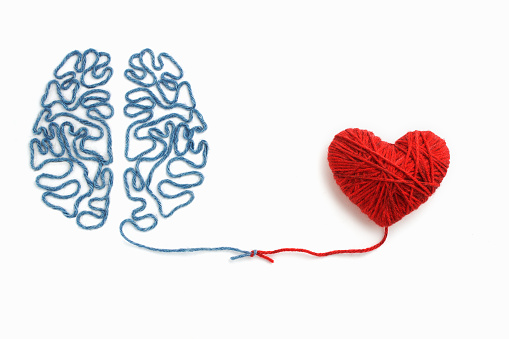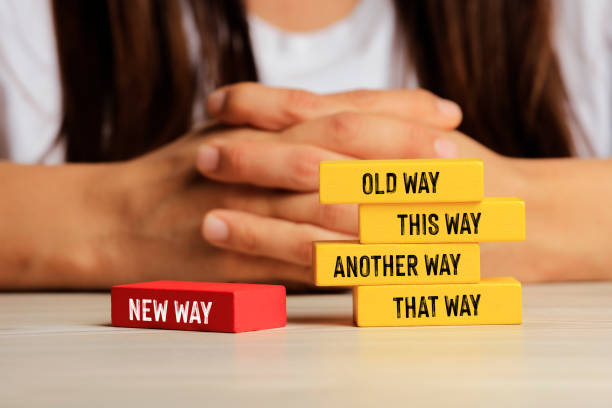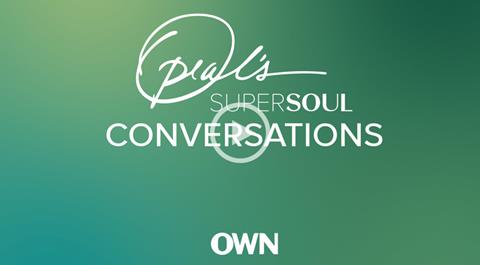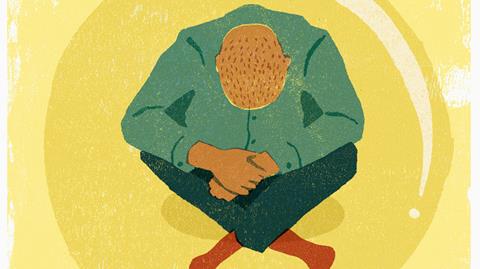You're Emotional
Connections
It is our pleasure, purpose, and goal to share Connection - Holistic Lifestyle - Alternative Healing Treatments - Living Happier with New Thought - from original sources.
GlobalCnet is a collection of links to the original thought, research, new ideas, and found expert advice. We have assembled extensive information and facts to inspire YOU to further your education, skills, and desires on your specific subjects. When you click on a blue link, you arrive on a website, do your research, and observe all the other articles available to you. Record what you need. Share what you learned
GlobalCnet connected you, to make better-informed decisions.
This is a teaching and informative Web Site again, presenting original authors, like Harvard University, MedNet, Unstuck.com, Readers Digest, Mental Health, and documents from millions of Web Sites which were written, published, and illustrated with specific content to expand your knowledge for personal growth, health and answers. All this WWW content was meant for your reading and answers,
GlobalCnet just connected you.
It is our hope that you use all information for further answerers, ideas for more exploration, and the wisdom to share discoveries with others. It is all about having the right fast or safe connections. Everything has already been discovered, be smart, and use proven methods and spin your solutions to fit your needs.
Any questions, comments or to just say hello...leave a webmail .
Quick links to information and new ideas. click here.
OK...you are now on GlobalCnet. You can use the SEARCH BAR to quickly find subject information, or you can visit all the pages. Your visit will award an organized starting point leading to answers to your challenge.......just do it. Type in a word and hit search.
- Michael J. Malette, PhD
Founder, Global Connection Network, Inc.

Many of you have probably heard complaints from your partner about “not feeling connected.”
If you have not spent some time considering your own emotional needs, you may have no idea of what s/he is talking about.
Here I will address three basic questions: What does it mean to feel connected? How do two people get disconnected? What can be done to minimize the problem of disconnection?
What does it mean to "feel connected"?
Basically, feeling connected means feeling in touch with someone who cares about us.
Most people acknowledge that children need to feel a safe attachment to an adult who cares for them.
The reality is that adults also need a secure attachment to another adult.
Each of us has an innate need to feel safely attached to another person who will be there in our times of physical or emotional need.
When we enter into a committed relationship, this need actually intensifies due to the hope that this one special person will consistently be there for us.
Specifically, we hope that this one adult will meet our emotional needs in three ways. (Susan Johnson, 2008).
1. Can I get your attention when I need it?
When I ask for your attention, can you be available to me?
Can you listen to what I am saying?
Am I a top priority to you? To sum up, Are you accessible to me?
2. Can you comfort me when I am anxious, sad, lonely, or afraid?
Will you make some effort to comfort me in those situations?
In other words, Are you responsive to me?
3. Do you care about my well-being even when we are not together? I need to know that you care about my joys, hurts, and fears.
Will you care about me consistently and reliably?
Are we truly engaged in each other’s lives?
How do two people get disconnected?
Often the offending partner is not even aware of the behavior that led to a loss of connection or the threat to secure attachment.
It is not humanly possible to stay constantly tuned in to your partner’s emotional needs.
Even if you are both trying to be attentive, you may miss each other’s signals about sensing detachment.
In the case of one of my therapy couples, Kari became accustomed to getting an affectionate hug from Jim every evening before going to sleep.
When the hug went missing for several nights in a row, she began to feel a disconnection from him.
It seemed to her that he had stopped feeling affection for her, which signaled to her that their attachment was no longer secure.
This triggered a deep fear in Kari. Jim missed the signals of her emotional distress and was unable to reassure her of his commitment before they spiraled down into an argument about “how cold and unloving he was.”
All couples have instances of emotional disconnection.
Many times, these lead to complaints, defensive reactions, and heated arguments.
What can we do to minimize the distress and the arguments that usually result?
Here are three steps involved in avoiding the arguments that result from disconnection:
1. Become aware of the patterns of your arguments,
2. identify emotional triggers that lead you and your partner to feel the loss of connection, and
3. learn to ask for and to provide comfort.
1. Many arguments fall into recognizable patterns.
To illustrate one common pattern, I will again use the example of my therapy couple.
Kari stops receiving hugs and files a complaint to Jim.
She feels disconnected due to the loss of affection, but rather than saying that she tells him that he is “not affectionate enough.”
Jim defends himself; he has been preoccupied lately and caught up in his own thoughts at night.
Kari then feels further disconnected because she has filed her complaint and is still not getting what she needs – a sign of his ongoing love for her.
Her increased frustration quickly escalates to anger because now she feels “not heard” or “ignored.”
Her increased anger leads Jim to shut down emotionally, hoping that somehow her anger will stop if he does not react to it.
This strategy fails, of course. It is no more effective (or advised) to ignore a distressed spouse than it is to ignore a distressed child. Both need comfort and reassurance.
Let’s consider another pattern, that of finding out “who’s to blame.” John files a complaint with Sara that her 12-year-old daughter (his step-daughter) is a “spoiled brat.”
Sara spends much of her evening and weekend time driving her daughter to various activities, leaving John feeling lonely.
Neither of them recognizes that John is feeling sad and left out.
Sara responds to the criticism of her daughter with the accusation that John is not making an effort to bond with the child.
Now John is feeling both left out and inadequate, which is overwhelming for him and triggers more angry comments from him, in an attempt to put the blame back on Sara.
It is critical to recognize the pattern of arguments between partners and to see them for what they really are: pleas for a sign that the other person cares.
2. Each of us has emotional triggers that cause our innate fear of abandonment to spike.
Sue Johnson calls these our “raw spots.”
Partners unintentionally hurt each other’s emotional raw spots.
When we learn to identify these sensitivities in ourselves and in each other, we can make an effort to avoid them.
In my sample case, Kari is sensitive to a loss of affection and to “being ignored.” Jim is sensitive to being criticized as “cold and unloving.”
John's sensitivities include feeling left out and feeling inadequate.
3. The final step sounds simple but may take a lot of practice.
We often have misguided ideas about how to get our emotional needs met.
Too often, we expect a partner to know what we’re feeling and what type of comfort we need.
This is unrealistic.
Kari might have simply asked Jim for a hug when she needed some affection from him.
A second hurdle to getting through step 3 is the fact that many of us were raised with messages such as “Don’t express feelings,” “Don’t be vulnerable,” or “Don’t let them see you cry.”
We may have even been ridiculed for having feelings.
These types of messages must be seen as preventing two loving adults from expressing the need for comfort from each other.
The better message to tell yourself is: Have courage, and trust that your partner loves you. S/he wants the connection as much as you do.
There may be times when the other person's attention is focused upon other matters, but be patient and reach out in a loving way.
For professional help in sorting out your feelings about connection, see a therapist experienced in Emotionally Focused Couples Therapy.
(Note that the names used for the sample therapy couples are fictional.)

|
Focusing Our Energy |
|
Focused attention on one thing at a time can make the most of our life-force energy and bring about the change we want. As modern life makes a wealth of information and opportunities available to us, we may find ourselves torn between a wide variety of interests and projects. Our excitement may entice us to try all of them at once, but doing so only diffuses our energy, leaving us unable to fully experience any of them. Like an electrical socket with too many things plugged into it, we may be in danger of overheating and burning out. But if we can choose one thing at a time to focus all of our attention upon, we can make the most of our life-force energy, engaging ourselves fully at the moment so that it can nurture us in
return. But when we take the time to listen to our inner guidance and focus our thoughts on the goals that resonate the most strongly within us, the rest of the world will fade away. This may mean focusing the spotlight of our attention upon developing one aspect of our work, one course of study, or one hobby to pursue in our free time, but it doesn't mean that we have to stay focused on only one thing forever.
We may never know which of our interests is best suited to our abilities and heart's desires unless we give it a proper chance. By being fully present with all that we are and all that we have, we
can experience each choice fully and make the most fulfilling choices for our energetic investments. Our work in the world is necessary to attend to our physical needs, and our relationships are important for our emotional needs, but when we engage our spirit as well, we can choose the area that will nurture body, mind, and soul. Staying focused in each moment allows us to move with the rhythmic flow of the universe and harmonize all aspects of our being into a balanced whole. |
How My Traumas Made Me Stronger And Wiser
Potent lessons from the worst times of my life

The only good thing about experiencing traumatic things is that they teach you a lot.
When you’re going through it, it’s of course deeply painful. But looking back, you can see crystal clear what that experience taught you.
Don’t let traumas be useless. Look back on them and think about what they taught you.
Use those realizations and lessons to improve your life moving forward.
In my relatively short life of 21 years thus far, I’ve survived some truly terrible things.
I look back on them now with the mindset of a student though.
I hate that those things happened to me, but I’m glad that they at least taught me lessons that I can use to improve the rest of my life.
Hindsight and retrospect are the best teachers.
Here’s what they’ve taught me.
Being Sexually Abused
When I was a kid living with my family in the middle-east, I was sexually abused by my cricket coach. It’s a painful and infuriating memory if I think about it for too long.
So, I won’t.
Instead, I’ll just tell you what I learned from it.
Lesson — Sexual abuse can happen to anyone, anytime, anywhere.
Especially in the case of children, the problem has been rampant.
Not everyone’s out to get you in this world, but it makes sense to keep your guard up to combat the truly bad human beings of our society.
Holding on to anger is useless though.
For years, I kept this in and it just ate at me.
When I wrote about it, I not only received the support and compassion from many people that I never got from my parents when it happened, I also began healing.
Writing or opening up to someone isn’t magic, it won’t solve all your problems.
But it can kickstart your journey of healing.
Staying In Toxic Relationships
As a teenager, I had two relationships one after another that were deeply toxic.
Both went on for about a year each.
I stayed in them way longer than I should have.
I did so because I was weak.
The worst part about toxicity is that — despite being miserable, it’s easier and more comfortable to stay in the toxic situation than leave.
Lesson — Love isn’t enough, ever.
I stayed in those relationships despite wanting to kill myself at times because my teenage brain thought that that’s what you’re supposed to do when you’re in love.
Love, no matter how much in quantity or how great in quality, is not enough by itself to sustain a relationship.
Maturity and compatibility are far more important factors that determine the future of any relationship.
Facing Hate And Threats From Complete Strangers
During my teenage, I was a popular kid.
I don’t know how or why but I’d stumbled my way into micro fame.
Everyone of my age in town knew of me.
People wanted to either be me, get with me, or kill me.
The last part is obviously the one that bothered me. I’d get death threats and hate messages from people I’d literally never spoken to, heard of, or met.
Lesson — Attention, fame, and popularity are all double-edged swords.
The more people know of you, the more people hate you.
Ask any celebrity, they’ll agree.
As a society, we have this colossal misconception that fame is always a good thing.
While it isn’t necessarily a bad thing either, it’s nothing to be worshipped, chased, or seen as an achievement.
Losing My Aunt And Grandfather In One Week
I was in my early teens when my grandfather and aunt passed away in the space of a few days, both from unrelated ailments.
Since I was a kid and not particularly close to either of them, I didn’t experience too much grief at the time.
It’s only recently that I’ve realized just how much of a lasting toll that that experience has left on my psyche.
Lesson — You never know when the grim reaper’s coming your way.
Live each day as it’s your last.
Treat every loved one like it’s their last day.
My mother lost her sister and father that week, both of them died unexpectedly.
My cousins lost their mother when they were just teenagers.
I can’t imagine ever getting through something like that.
Thank god my mom and cousins did.
Thinking of that makes me want to cherish every second that I get with my loved ones.
Facing Physical Abuse As A Child
I grew up before children’s rights and ‘wokeness’ went mainstream.
Moreover, I grew up in India, a place where hitting your children was not just considered normal but also encouraged at times.
It was a sign that you were a strong, decisive, and good parent. You wanted the best for your child so you did whatever it took to discipline him/her.
The worst instance of physical abuse I endured was my mother heating a steel spoon on the stove and putting it on my cheek, on purpose.
Imagine that, your own mother burning your face with a boiling hot spoon.
For the next few years, I had a black burn mark on my cheek until it eventually thankfully faded away.
Lesson — Violence and cruelty are never, ever the answer.
No good comes out of it.
“I object to violence because when it appears to do good, the good is only temporary; the evil it does is permanent” — Mahatma Gandhi
I love my parents but I will never be able to forgive them for what they put me through in my childhood.
Violence breeds negativity, hatred, and trauma.
No matter what you feel like at the moment, stay the hell away from it.
Having Flatmates Whom I Hated
In my first year of university, I’d gotten an apartment with a couple of my classmates.
I didn’t know them that well but we all just needed a place to live.
To my horror, they’d play loud music, party, and trash the house all day and night.
Countless efforts of mine to ask them to stop bore no fruit.
Every day I’d wake up to strangers passed out in the living room, with cigarette buds, ash, bongs, and alcohol bottles strewn all over.
Lesson — We underestimate how much of our mood, mental state, habits, and overall health depends on our surroundings.
Your environment shapes your mind and your life.
If your environment is toxic, so will your thoughts.
That whole saga ended with me having a breakdown, breaking the lease, losing money, and moving out.
That’s the reason why I make the long commutes to university every day now.
Never again will I live with someone whom I don’t trust, know, and respect.
Being Clinically Depressed
Shortly after getting out of the toxic relationship and living situation, I dropped out of college for a while.
I was diagnosed as clinically depressed by a psychiatrist and put on anti-depressants.
Everything seemed dark and I didn’t want to be alive anymore, let alone do anything productive.
Lesson — Mental illness makes you feel like nothing will ever get better. In reality, that couldn’t be further from the truth.
If you give it enough time and put in the effort, everything always gets better eventually.
The simple formula for improving your mental health and pretty much anything else in life is: improvement = time + effort
I’m not saying it’s easy.
It’ll probably be way harder than you think and take way longer than you think.
But it’s possible.
If there’s one fundamental truth I’ve learned from all these experiences, it’s that — there’s always scope for betterment.
Have faith, ask for help, put in the effort, and give it time.
If you do these things, everything will turn out just fine.
There Are Two Kinds of People
Which are you?

Hi, I don’t like people.
I need about 5 working days to recover after > 2hrs of social interaction.
Oh and also, I actually do want to leave the party before the clock strikes midnight, unlike Cinderella.
You see, I’m an introvert.
INFJ, to be specific.
Nice to meet you.
Okay, I’m kidding about that first sentence.
But these are some of the narratives surrounding this “quieter” personality type. (Or maybe everyone else is simply loud?)
Growing up, I used to wonder if there was something wrong with me.
Why did I want to stay back at home and curl up with a book?
Why was I was more intrigued by abstract concepts?
Why did I (do I, still) dislike phone calls?
Things changed when I discovered what a personality type was actually about.
The psychology behind personality types
“Personality refers to a person’s distinctive patterns of thinking, feeling, and behaving, over a stable time-frame.”
From the 4 basic temperaments proposed by the Ancient Greeks to the more recent HEXACO model, personality types and tests abound. For good reason.
Personality types are important.
They determine our physical and mental health, dating compatibility, and even overall success in life (whatever your definition of that is).
The MBTI is particularly popular.
It was developed because there was probably no way there were only two kinds of people (introvert/extrovert).
I once had a friend take the test, live, while we were on a video call and he screamed at the results. They were accurate even up to his current profession (as suggested was right for him, by the test).
However, the most widely accepted by psychologists today is the Big 5.
These include the traits:
openness (the tendency to welcome new ideas or experiences),
conscientiousness (the tendency to be careful and rule-abiding),
extraversion (the tendency to be talkative and more social),
agreeableness (the tendency to go along with others) and
neuroticism (the tendency to experience emotions such as sadness or anxiety).
But while personality tests can reveal a lot about a person, they’re not the full picture of the human experience.
I remember reading through my test results and shaking my head at some of the weaknesses I was supposed to have.
I didn’t have them.
At least not anymore.
I was supposed to be overly sensitive to criticism but I don’t care that much anymore. I was supposed to be reluctant to open up.
To be overly perfectionistic.
I couldn’t have been the type of person to create and share online, let alone make YouTube videos.
What I realised was that there was a place for self-awareness and acceptance.
But there was also a place for growth and determination. To play up our strengths as we work on perceived weaknesses.
Personality is on a spectrum, subject to tweaks throughout our lives.
Behavioural therapy is a treatment modality in Psychiatry for the management of personality disorders, such as the narcissistic and antisocial types.
I find these tests interesting especially because reading Laurie Helgoe’s Introvert Power changed my life a few years ago. It was the first time I felt understood.
But I’ve also had to ask myself this…
Where does a personality come from?
“The chicken or the egg?
The person first or the personality?”
I mean, are we simply a bundle of personality letters pre-installed, like the alphabets within our DNA? Can we altogether switch from one personality to the other?
Or at least, alter it?
Well, yes. To all three. Although not exactly.
In her 2017 article in Psychological Review, Professor Dweck proposed that although our personality is initially brought on by heredity, it develops around our motivations (needs and goals).
For example, if a child is naturally more prone to fear, there might be a need for the predictability found in a stable routine.
The research also suggested that there were invisible and visible aspects of personality types.
The invisible consists of the beliefs, emotions and action tendencies (BEATs) and needs.
The visible is what we do, which is not always in agreement with the BEATs.
However, the consensus is that our core personality will always remain because genetics play a role. But that can’t be changed.
At least not yet.
And so, I’ve learnt to become comfortable in my skin. It feels like the moment I realised and actively learnt about my personality type, my confidence shot up by 66.6%.
Arbitrary figures aside, I’ve become more self-assured without losing sight of the flip side of the coin — my weaknesses.
That, I can do something about that.
But at least, I no longer have to apologise for one of the factors that contribute to who I am.
P.S. 00000000000000 “I’m one of the 10 people who’ve never watched *insert popular T.V show*” is not a personality type.
20 Things to Remember When Rejection Hurts
Written by Angel Chernoff

Be OK with walking away. Rejection teaches you how to reject what’s not right for you.
As you look back on your life, you will realize that many of the times you thought you were being rejected by someone or from something you wanted, you were in fact being redirected to someone or something you needed.
Seeing this when you’re in the midst of feeling rejected, however, is quite tough.
I know because I’ve been there.
As soon as someone critiques, criticizes, and pushes you away – as soon as you are rejected—you find yourself thinking, “Well, that proves once again that I’m not worthy.”
What you need to realize is, the other person or situation is not worthy of you and your particular journey.
Rejection is necessary medicine; it teaches you how to reject relationships and opportunities that aren’t going to work, so that you can find the right ones that will.
It doesn’t mean you aren’t good enough; it just means someone else failed to notice what you have to offer.
Which means you now have more time to improve yourself and explore your options.
Will you be bitter for a moment?
Absolutely.
Hurt?
Of course—you’re human.
There isn’t a soul on this planet that doesn’t feel a small fraction of their heart break at the realization of rejection.
For a short time afterward, you will ask yourself every question you can think of:
- What did I do wrong?
- Why didn’t they care about me?
- How come?
But then you have to let your emotions fuel you in a positive way!
This is the important part. Let your feelings of rejection drive you, feed you, and inspire one heck of a powerful opening to the next chapter of your story.
Honestly, if you constantly feel like someone is not treating you with respect, check your price tag. Perhaps you’ve subconsciously marked yourself down.
Because it’s you who tells others what you’re worth by showing them what you’re willing to accept for your time and attention.
So get off the clearance rack.
And I mean right NOW!
If you don’t value and respect yourself, wholeheartedly, no one else will either.
I know it’s hard to accept, but think about it…
All too often we let the rejections of our past dictate every move we make thereafter.
We literally do not know ourselves to be any better than what some intolerant person or shallow circumstance once told us was true.
It’s time to realize this and squash the subconscious idea that you don’t deserve any better. It’s time to remind yourself that…
- The person you liked, loved, or respected in the past, who treated you like dirt, again and again, has nothing intellectually or spiritually to offer you in the present moment, but headaches and heartache.
- One of the most rewarding and important moments in life is when you finally find the courage to let go of what you can’t change, like someone else’s behavior or decisions.
- Life and God both have greater plans for you that don’t involve crying at night or believing that you’re broken.
- The harsh truth is, sometimes you have to get knocked down lower than you have ever been to stand up taller and emotionally stronger than you ever were before.
- It’s not the end of the world—it’s never the end of the world – and yet rejection can make the loss of someone or something you weren’t even that crazy about feel gut-wrenching and world-ending.
- Sometimes people don’t notice the things we do for them until we stop doing them. And sometimes the more chances you give, the more respect you lose. Enough is enough. Never let a person get comfortable with disrespecting you. You deserve better. You deserve to be with someone who makes you smile, someone who doesn’t take you for granted, someone who won’t leave you hanging.
- Some chapters in our lives have to close without closure. There’s no point in losing yourself by trying to fix what’s meant to stay broken.
- Take a deep breath. Inner peace begins the moment you decide not to let another person or event control your emotions.
- You really can’t take things other people say about you too personally. What they think and say is a reflection of them, not of you.
- Those with the strength to succeed in the long run are the ones who build themselves up with the bricks others have thrown at them.
- Let your scars remind you that the damage someone has inflicted on you has left you stronger, smarter, and more resilient.
- When you lose someone or something, don’t think of it as a loss, but as a gift that lightens your load so that you can better travel the path meant for you.
- You will never miss out on what is meant for you, even if it has to come to you in a roundabout way. Stay focused. Be positive.
- Rejections and naysayers aren’t that important in the grand scheme of things; so don’t let them conquer your mind. Step forward! Seriously, most of us do not understand how much potential we have – we limit our aspirations to the level someone else told us was possible.
- Too many people overvalue what they are not and undervalue what they are. Don’t be one of them. Ultimately, you are who you are when nobody’s watching. Know this! And dare to be yourself, however awkward, different, or odd that self may prove to be to someone else.
- Comparing yourself with others, or other people’s perceptions, only undermines your worth, your education, and your own inner wisdom. No one can handle your present situation better than you.
- The more we fill our lives with genuine passion and purpose, the less time and energy we waste looking for approval from everyone else.
- You can use your struggles, frustrations, and rejections to motivate you rather than annoy you. You are in control of the way you look at life.
- Sometimes transitions in life mean something even better is coming your way, so embrace them and don’t be afraid to let go.
- Right now is a new beginning. The possibilities ahead are endless. Be strong enough to let go, wise enough to move forward, diligent enough to work hard, and patient enough to wait for what you deserve.
Afterthoughts
All details aside, you don’t need anyone’s constant affection or approval in order to be good enough in this world.
When someone rejects or abandons or judges you, it isn’t actually about you.
It’s about them and their own insecurities, limitations, and needs.
So you don’t have to internalize any of it!
Your worth isn’t contingent on other people’s acceptance of you.
You’re allowed to be yourself.
You’re allowed to voice your thoughts and feelings.
You’re allowed to assert your needs.
You’re allowed to hold on to the truth that who you are is more than enough.
And you’re allowed to let go of anyone in your life who endlessly makes you feel otherwise.
10 Signs You Have a Genuine Emotional Connection with Someone

This question makes much sense when we are talking about new relationships.
In the beginning stages of a relationship, determining if you have a strong emotional connection with your partner can be quite tricky.
Maybe you’re questioning if your feelings for your partner are truly genuine, or if he or she is as invested as you are in the relationship.
Or, maybe you’ve hit it off physically and you have no idea whether there’s something there. A connection perhaps?
Or just a one-night stand.
Or lastly, you might be looking for signs that your partner feels the same deep love and connection to you, which means that he or she will continue to be a part of your life in the near and far future.
Well, in today’s post, we’re discussing the 10 most significant signs that tell whether you or your lover have a genuine emotional connection towards each other:
1. You Won’t Be Afraid to Display Your Weirdest Habits
A genuine connection brings more than feelings.
It brings a lot of fun to the table, as you and your spouse won’t be afraid to show off your weirdest habits.
A very weird morning routine?
Interesting!
Whatever it is, displaying it won’t be a problem, simply because the person you’re sharing all this weirdness with will not judge!
2. Communication Will Go Smoothly and Easily – Never Forced
The communication between you and your partner can tell a lot about the strength of your emotional connection.
Soul mates can talk for days without boring each other.
People that are in for the physical part will barely have to talk about common subjects.
That’s why one-night stands are 90% action and 10% talk.
However, when there’s an interesting connection between two people, both will want to take it slowly and enjoy the prelude.
3. You Can Joke Around without Taking It Personally
A strong emotional connection changes people.
If a few months ago you’d judge what your spouse had to say, now you might feel that almost nothing can affect you, because you can feel that those things are not meant to affect you.
They’re meant to be fun, interesting, or to capture your attention.
You two can joke around without carrying bad feelings after teasing each other.
4. You Won’t Seek an Opportunity to Get in Touch – You’ll Just Do It
Considering that the two of you are not living together, calling and texting will be frequent.
If you’re in love with someone, you’ll never need a reason to get in touch.
You’ll simply do it without questioning your motives.
But the motives could be many: you might want to see how she/he is doing, might want to find out the time for your next date, or you might simply want to express the fact that you’re missing her/him.
5. How Others Perceive Your Relationships is Irrelevant to You
A strong emotional connection will destroy any concern that might come from other people’s judgments.
If there’s something with your partner, something special, something that you recognize as unique, nobody else’s opinion will matter.
Whether your parents, friends, or best friends agree with your relationship or not, that’s only their concern.
Feelings are stronger than opinions!
6. Your Partner Will Give Your Space Without Questioning You
Every time you need to do something on your own, your spouse will understand without giving your headaches.
We all know how annoying questioning can be, and that’s exactly what we don’t want to see in our romantic relationships.
Considering that there’s a significant connection between the two of you, both you and your spouse won’t feel the need to question each other.
Space is very important in any type of interpersonal relationship.
In a romantic relationship though, the common respect and understanding for each other’s private needs will determine the quality of time spent together.
7. You’ll Be Able to Talk Openly About Your Feelings
If you feel the need to say something, you will say it and so will your lover.
When the emotional connection between you two is reciprocal, talking about each other’s feelings will be extremely pleasant and easy.
Besides the alcohol that makes you talk about feelings with much ease, love is also a predominant trigger for this behavior.
The stronger are your feelings for someone, the stronger is the urge to express them.
8. You’ll Disagree Without Showing Lack of Respect
When you don’t like something about your partner, you won’t feel reluctant to speak it out loud.
That’s the most important thing – to feel confident that your remarks will bring a positive change and that the effort is worth it.
Even if your spouse doesn’t take it very well, it’s the right thing to do.
For both of you!
However, when you’re truly connected to someone, disagreeing will not be something that’ll bring conflict, because the remarks do not show a lack of respect.
9. Your Partner Will Always Have Your Back in Difficult Situations.
Soulmates do not always agree with everything.
But when it comes to the most important things in life, concerning values, goals, basic beliefs, and priorities, they are on the same side.
Moreover, whenever you’ll encounter a tough situation, your partner is usually there to help.
10. You Will Share a Powerful Mutual Respect.
Relationships often break up when two people try to change each other.
But close souls accept each other completely because they are proud of each other.
They support their partners in everything and they’re showing unconditional respect to each other.
One of the biggest factors that contribute to so many breakups is the lack of respect.
You never insult, lie, or cheat.
You don’t feel the need to do such things because you know they won’t bring any good to the relationship.
An emotional connection is strong when both partners keep it that way!
Takeaways
An emotional connection is too complex to be labeled as black or white, small or big, fair or not fair. Every connection is special is unique.
There are lots of complexities and variations, but at the same time, it’s all linked to you.
It’s about who you are and what you want.
If deep down you want a wife/husband, you’ll unconsciously look for such qualities in your partner. However, if you want a bad girl/boy, a connection with a nonviolent person will not be as strong (or won’t be at all).
Pay attention to your own desires and tap into your self-awareness – it will help big time!
How To Build An Emotional Connection
What is an emotional connection?
If you listen, are there signs that tell you that you are bonding with someone?
Why is finding that level of emotional security so difficult with the opposite or same sex?
Learn the ins and outs of an emotional connection and why it is necessary to bond emotionally in order to build a relationship.
Defining Emotional Connection
Each person individually defines what an emotional connection means to her, but there is a basic definition that can apply to all people.
An emotional connection is a bundle of subjective feelings that come together to create a bond between two people.
The word emotional means to arouse strong feelings.
The feelings may be anger, sorrow, joy, love, or any of the thousands of emotions that humans experience.
A connection is a bond, a link or tie to something or someone. Interlock the two words, emotional connection, and it becomes a bond or ties to someone with whom you share a particular set of emotions.
Relationships without an Emotional Connection
In order for a relationship to build and become stronger, forge an emotional connection.
Perhaps you are in a relationship with someone you feel strongly about or love. He, on the other hand, seems distant, often holding back thoughts and seldom sharing himself, physically or emotionally.
This sort of relationship might be a friendship or a co-dependent situation of living together or fulfilling a sexual need.
Without a strong emotional connection, it is doomed to frustrate one or both partners and ultimately fail.
The Bonds that Hold A couple that meets and delves into learning as much about each other as possible creates an emotional connection.
Through thoughtful and caring communication, you each learn the intricacies of the other.
You learn what makes him happy, what makes him angry, and what brings him to his knees in joyful celebration.
He learns what brings you to tears, what causes you to smile mysteriously, and what frustrates you.
You each learn the essence of the other and feel compassion and empathy, or share the emotion.
In order for a couple to benefit from the joys of an emotional connection, they must be willing to become vulnerable with each other.
Allowing someone into your inner sanctum of secrets, pain, and joy means taking risks.
A risk of this magnitude demands trust.
When trust is betrayed, the healing is long and arduous.
According to Susan Johnson and Hara Estroff Marano, authors of the article “In the Name of Love” (Psychology Today Magazine, March 1994), “We fall in love when a strong attachment bond is formed. We stay in love by maintaining the bond.”
Without a strong emotional connection, the road to love is blocked.
When the attachment breaks or becomes neglected, love falls to the wayside.
Signs of Emotional Connection
Although every individual’s emotions differ, there is one universal sign that an emotional connection has been made between two people.
A true sign is that both parties invite the other inside.
You share funny stories of what happened at work and you share bad days when everything went wrong.
You are both willing to give each other peeks into childhood dreams and adult aspirations.
The conversation flows easily from one to the other.
Even in silence, a couple creating a strong emotional bond will feel at ease.
You can share anything with your partner without fear that he will flee and he feels the same.
The area of emotional connection is so subjective that each person exhibits different emotions and physical feelings.
She may feel “butterflies” in her stomach each time he calls.
He may finish his sentence or start speaking the same thought at the same time.
Is this a deep bond or just coincidence?
Every person views it differently.
Keep in mind there is a difference between physical attraction and an emotional connection.
Although one may lead to the next, physical attraction is a superficial emotion that begins the journey toward an emotional connection and love.

Marriage and Emotional Connections
An emotional connection in marriage is necessary if the union is to survive the rigors of life.
When one partner comes home to a distant spouse who refuses to share, the marriage suffers. Resentment builds, disagreements ensue and a merry-go-round of hurt and lack of trust keeps the marriage in a state of turmoil.
If you feel you have lost the emotional connection with your partner, try to figure out the cause.
Is there an unforgiving wrong that has caused distance between the two of you?
Perhaps in anger, something was said or done that caused emotional or physical pain.
Maybe one of you just stopped trying due to lack of time or not wanting to face an issue.
Denial comes into play, making it difficult to re-establish the all-important emotional connection.
How to Establish an Emotional Connection
If you want the healthiest relationship possible, learn how to establish a strong emotional connection with your partner.
With this in place, all other areas will flow naturally. Here are seven tips that can help you forge an unbreakable bond:
1. Study Your Partner Understand what your partner needs and wants from life and you. This means paying close attention when he talks.
Look past the words and into his heart where he harbors secrets he wants to share.
2. Trust Develop a sense of trust with each other.
This building block to an emotional connection will not come overnight.
It takes time to develop secure feelings with another person. Let trust build naturally.
3. Emotional Availability
Both of you must be emotionally available to the other.
If you hold back in any way, you are not opening yourself up to the possibilities of a strong connection.
4. Show Affection
A couple in a budding relationship has a little problem showing affection, but married couples suffering from a fraying connection may need to work on being affectionate with each other.
Kiss each other good morning and good night.
Hold hands, hug and rekindle the fires of physical love.
5. Fight Fair
In the midst of a heated battle, words and accusations fly, often hitting an unintended mark.
Learn to fight fair.
If you do not know-how, search for a book or counselor who can help you.
When arguing do not bring up the past.
Stay in the moment and use solid reasons for why you feel the way you do.
6. See the World Through His Eyes
Try to see the world as he does to discover who he really is.
This means stepping back at times to envision why he behaves in certain ways. Observe how he reacts to situations and try to imagine being in his shoes.
Expect him to do the same.
7. Overcome the Obstacles
Couples in faltering marriages often have pressing issues that need to be solved before an emotional connection can be established again.
Define each problem together and then find solutions to alleviate or eliminate the obstacle.
Once the biggest obstacles are conquered, you can begin rebuilding the lost emotional connection.
Emotional connections are complex and subjective but bring so much to the relationship table.
Without building a strong bond, the relationship cannot advance from a simple friendship.
Remaining in a relationship without any emotional connection means one or both people will end up feeling as if something is missing.
And they would be right.
In this case, something is missing: the strong chain that binds two people together and develops into a deep, abiding love that stands the test of time.
Three Ways Leaders Make Emotional Connections

When I first started working in then-Big Six consulting firm Coopers & Lybrand, the partner I was assigned to was a gentleman named Chris Abramson, and he had an enormous scale of responsibility.
Yet whenever I talked with him, which was not that often, he gave me his undivided attention. He talked with me about my goals and my development opportunities.
He shared stories about life (both his and mine) outside the office.
Even in our short conversations, in which he frequently was directing me to do something, he injected some kind of personal remark or comment.
Chris Abramson excelled in one of the most important — and most misunderstood — of leadership skills: making an emotional connection.
Leadership has everything to do with how you relate to others and the quality and texture of those relationships.
The higher up you go in an organization, the less important your technical skills become, and the more your interpersonal skills matter.
I’ve seen this confirmed in my work with hundreds of leaders and in reviews of 360-degree feedback data on thousands more.
The ability to make an emotional connection is so often misunderstood because it’s not about being emotional or showing emotion.
It’s about making a human connection — one person to another.
Chris Abramson had the ability to connect on that level with me, with teams, with an entire office of over 600 associates — to show us how important we all were to him and that there was more to our relationship than just the job at hand.
He was a natural, but there are some things the rest of us might do to forge these kinds of connections.
- Like Chris, give people your undivided attention. This sounds simple, but it’s easy to lose sight of. When I feel overloaded in the midst of ringing phones, e-mails by the hundreds, and a gazillion other things to do, I’ll sometimes think about how Chris unfailingly engaged with people in this way, and the energy he brought to and created in those interactions as a result. He made us want to do more because we didn’t want to let him down.
- Be aware that emotions are contagious. Research has shown that a person’s mood can be affected even by three degrees of separation from people they don’t even know. So imagine your impact in the workplace on those who report to you directly. Whether positive or negative, your emotional state has a significant influence on those you work with, especially when you’re the boss. We all have our bad days, but we don’t have to multiply their ill effects. If you’re feeling particularly anxious or negative, make an effort to quarantine yourself — do more of your administrative tasks, avoid situations that might trigger even more stress, take the afternoon off (you may do more harm staying on the job). On the other hand, when you’re feeling especially buoyant, make an effort to spend more time with direct reports, go to more meetings, reach out to others in the organization. Use this time to your advantage and multiply your positive emotions.
- Develop your sense of extraversion. Make no mistake, this is easier said (or written) than done, especially if you’re naturally an introvert. But if you’re a leader, you simply have to develop the ability to reach out to others, engage them in discussion, and actively provide feedback. You’re the one who has to be out in front, taking the lead in developing these relationships. Even introverts can muster the energy to do these things and relate to others. (And then, when you’re exhausted from it, you can sit quietly with a book.)
As leaders, by definition, we do our work through other people, and yet how easy it is to lose sight of that, to focus on the amount of work — the tasks, the output, the jobs to be completed. The irony is, the more you focus on the quality of those connections, the greater your quantity of output is likely to be.
Although 87 percent of organizations listed engagement as a top priority in a recent study, a mere 15% of employees report actually feeling engaged in the workplace.
For employees to perform at their highest levels and be dedicated to the collective success of the organization, they need to love where they work.
They need to feel an Emotional Connection (EC): a motivating sense of satisfaction and intellectual alignment that can only come from feeling appreciated and part of a shared and worthy purpose.
When employees see how their work positively affects organizational outcomes, and that it matters to their managers, colleagues, and the wider world, that’s “emotional connection.”
It requires something deeper and longer-lasting than financial incentives. Increasing salaries, offering huge bonuses, and other perk-based plans will not create legitimate, long-term buy-in from employees, despite the cost.
Neither do engagement efforts, as they are often executed by HR departments, which keeps leadership in the dark and detached from the process and from employees.
Employees want the opposite: they want to feel aligned, and connected, with leaders.
When employees feel supported by leaders and able to be themselves, and connect to each other in a deep way, it shifts their perception of their workplace to be “In Great Company.”
It’s a positive dynamic: you are in a place you love to be, you want to give more of yourself, and you choose to add value.
As a result, you are more willing and able to achieve your business goals.
Not only is the state of emotional connectedness possible, but it is also instrumental to organizational success. “Emotional connectedness undoubtedly inspires discretionary effort and passion from our employees and our customers,” said Bob Maresca, CEO of Bose Corporation. Dozens of other CEOs, such as Hubert Joly, Chairman, and CEO of Best Buy, concur.
Leaders need to tend to five critical elements in order to spark emotional connection and improve workplace engagement and productivity.
These elements are ubiquitous, implementation-focused, and together create a great workplace in which everyone is inspired to perform at their peak:
1. Respect
Feeling genuinely respected is the prime reason people love their work and happy to be there.
The sense of emotional connectedness is far deeper in environments where respect is established as a type of social currency and exchanged reciprocally.
Making respect a part of the organization’s ethos and talent management processes, as Starbucks and Wegman’s have—is essential to applying this dimension.
Respect is the element that catalyzes all the others to drive peak performance, the match that sparks the flame.
2. Alignment of values
Employees thrive in organizations that place an emphasis on higher-order qualities such as honesty, integrity, and resonance with personal beliefs.
The emotional connection is established when leaders and peers all embrace common values, and everyone holds each other equally accountable.
Granular practices may be as simple as doing what you say you are going to do, or speaking the truth instead of avoiding it.
More conceptually complex practices include living the values and ethics the company espouses, such as happens in Patagonia and Johnson & Johnson.
3. Positive future
Employees thrive in progress-focused cultures that foster innovation and passion.
Since positivity is a cultural contagion, emotional connectedness is achieved when individuals use it in a unified way to move forward together to achieve results.
Although positivity may seem like a by-product of emotional connectedness, it is also a powerful catalyst for creating an emotionally connected culture — as happens in WD-40 or Big River Steel.
4. Systemic collaboration
Employees feel part of a great company when true and functional collaboration—becomes a part of the inner workings of the organization and its decision-making processes.
Working in small teams, they co-create results using open communication channels, where information and advice for being better in the future are shared freely and frequently.
Companies such as KeyBank and Atlassian observe several specific practices to co-create a sustained connection that drives results.
5. Killer achievement
Killer achievement delivers a combination of financial and emotional upside that amplifies the effect for everyone.
Employees need to be empowered to focus on the customers and critical goals, with extraneous minutia, eliminated.
Objectives should be simply stated, with the system removing competing interests that block the path to success.
This entails identifying and measuring the elements most important to the organization and allowing easy options for leadership, organizational development, and executive coaching.
Companies like Best Buy and Netflix ensure their people can create killer outcomes, keeping the organizations relevant, strong, and innovative.
— — —
It takes leadership buy-in to establish these five elements, and make aligning values, collaborating, co-creating a positive future, giving respect, and focusing on achievement all intrinsic parts of the organization.
Frequent measurements should be made to gauge the changes happening in the organization, establish a consistent pattern of follow-up, and make sure everyone in the company stays involved.
When this dynamic is set into motion in a workplace, everyone is aligned — and willing to do whatever it takes to preserve and grow the business together.
In that scenario, everyone wins.
Here's a simple exercise to strengthen your feelings of involvement and well-being.














